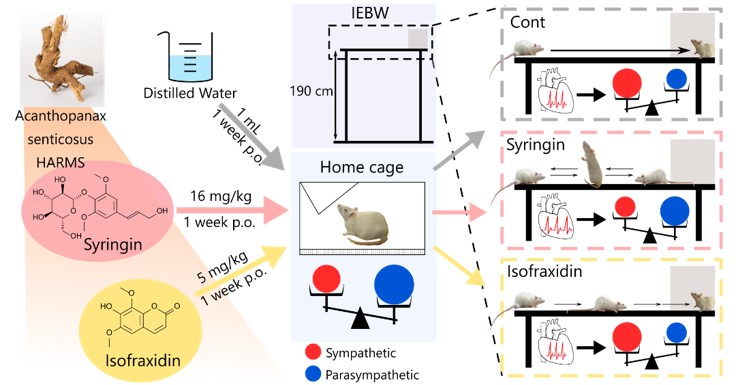JOURNAL 1775
Records of Natural Products
Year: 2021 Issue: 2 March-April
p.136 - 141
Viewed 3168 times.
GRAPHICAL ABSTRACT

ABSTRACT
Acanthopanax senticosus HARMS (ASH), a traditional Chinese herbal medicine, has been used to treat arthralgi, muscle weakness of the lower body, hypertension, and impotence. ASH was also reported to increase resistance to stress and fatigue. Recently, the efficacy of ASH against depression and stress-induced gastric ulcer was demonstrated in a rodent model. Previously, we also reported that ASH exerted anxiolytic effects and modulated autonomic nervous system activity under stress. However, no research has examined the anxiolytic effects of isofraxidin and syringin, two constituents of ASH. Thus, we investigated the anxiolytic constituents of ASH. The rats were administered distilled water, isofraxidin or syringin for 1 week. Autonomic nervous system activity was estimated using heart rate variability and anxiety behavior in the improved elevated beam walking (IEBW) test. The syringin increased the time spent in the open arm in the IEBW test. The syringin blocked the significant decrease in normalized high-frequency power, indicative of parasympathetic nervous system activity, in the IEBW test. The isofraxidin exerted no significant effects on behavior and autonomic nervous system activity. These results indicated that syringin partially contributes to the anxiolytic and autonomic nervous system-modulating effects of ASH.
KEYWORDS- Acanthopanax senticosus
- isofraxidin
- syringin
- anxiolytics
- autonomic nervous